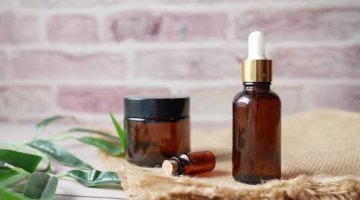What are lung function tests?
Lung function tests, also known as pulmonary function tests, are tests that are used by doctors to evaluate how a person's lungs are working or functioning. Among the parameters measured by these tests is how well a person can breathe and how efficiently his/her lungs distribute oxygen throughout his/her body. Looking for a lung clinic? Visit https://healthmark.sg/.
The following are some specific reasons why your doctor will require for lung function tests:
- Identify the source of respiratory issues.
- Diagnose and keep an eye on chronic lung conditions such emphysema, asthma, and chronic obstructive pulmonary disease (COPD).
- Test the efficacy of your lung disease therapies.
- Analyze lung health before surgery.
- Check to see if lung damage has resulted from exposure to chemicals or other substances at work or at home.
Also, having symptoms such as shortness of breath, coughing, coughing with phlegm or mucus, fatigue, wheezing and breathing difficulties would prompt the doctor to recommend lung function tests.
Lung function tests are particularly helpful in diagnosing a variety of lung conditions such as asthma, lung cancer, allergies, Asbestosis, Bronchiectasis, Chronic bronchitis, Chronic obstructive pulmonary disease (COPD), Emphysema, Pulmonary tumor, Lung fibrosis, weaknesses of the chest wall muscles, respiratory infections, and stretched, widened, or thickened airways, etc.
There are a lot of lung tests in use today. Depending on the health concerns they're trying to diagnose, your doctor might ask you to undergo one or more of these tests. The following are the common lung function tests:
- Spirometry is the basic lung function test. This test will measure the quantity of air we breathe in and out of the lungs, as well as how fast our lungs can expel air out. It will also measure the the size of the narrowing of lungs’ airways. Spirometry can help identify common lung conditions such as COPD and asthma.
This test is carried out while you are seated. You inhale normally for a few breaths, then, in response to the examiner's instructions, you exhale through a mouthpiece as forcefully or slowly as you can. To get the finest outcomes, it's crucial to closely adhere to their directions. To stop you from breathing via your nose, a nose clip will be placed on it. Spirometer is a device that is linked to the mouthpiece. When you breathe, this device counts the breaths you take in and exhale. The results are then shown on the device's monitor as a graph. Spirometry will be completed in just a few minutes.
- Body Plethysmography. Body Plethysmography can provide important information such as whether you are able to endure surgery, whether you have lung damage from exposure to toxins in your surroundings, and more. This test will ascertain the capacity of your lungs to hold air. You will be placed in a transparent, enclosed box for the duration of the test. After that, you'll be instructed on how to breathe through a mouthpiece and requested to wear a nasal clip. It usually takes 15 minutes to finish this test.
- Bronchial challenge test.A bronchial challenge test gauges the sensitivity of your lungs' airways. This is helpful to determine if a person has asthma. It entails inhaling medicine in progressively higher quantities that can irritate the airways and make them smaller. A significantly smaller amount of this medicine will have an impact on those with sensitive lungs than on those with healthy lungs. To ensure safety, the test is properly carried out.
- Lung diffusion capacity. A lung diffusion capacity test determines how efficiently oxygen moves from the lungs into the blood. This test is similar to spirometry where you inhale through a tube that is connected to a machine. Diagnosing a disease related to the blood vessels connected to the heart and lungs is aided by lung diffusion capacity tests. In some cases, like in emphysema, the extent of the damage can be evaluated by use of this lung function etc.
- Cardiopulmonary exercise stress test. Cardiopulmonary exercise stress test is used to determine the strength of our lungs and heart during rest and during exercise. Some conditions or problems only manifest during exercise thus this test is useful in diagnosing. For this test, the patient will be asked to walk on a treadmill or ride a stationary bicycle and the doctor will watch over his or her heart rate as it increases during the exercise. Also, the patient will be instructed to breathe into a tube that will monitor the lungs as they work har
- Pulse oximetry. Pulse oximetry or pulse ox is a simple, non-invasive test that measures the amount of oxygen in the blood. It determines whether the heart and lungs are supplying enough oxygen to the body. During this test, a device that resembles a clip finger or one of the earlobes. The probe will measure how much oxygen is in the blood with light. For continuous observation, the probe might be left on. Otherwise, the probe will be taken off right after the test.
- Arterial Blood Gas (ABG). An arterial blood gas (ABG) test checks your blood for the levels of oxygen and carbon dioxide as well as the pH balance present in it. Healthcare professionals generally request this test in emergency conditions since the sample is usually collected from an artery rather than a vein.
- Fractional exhaled nitric oxide (FeNO) test. The FeNO test is used to measure the concentration of Nitric oxide (NO) in a person's exhaled air. High levels of NO in the air breathed out means there’s an inflammation in the airways which can be linked to some types of asthma. If already under medication, this test will help the doctor check if the medicine is making improvement on your condition. Your doctor will have you blow into a portable gadget that will record your results as you undergo the test. The test usually needs to be repeated a few times, but it shouldn't take more than five minutes.
Here a few tips on how to prepare for lung function tests:
- Avoid eating a large meal right before the test. Your lungs may not be able to properly expand if you are full.
- If you take medication for a lung condition, let your doctor know. Some of them might need to be stopped before the testing.
- Wear comfortable, loose clothing that won't interfere with your ability to breathe during the test.
- Avoid smoking, drinking or any strenuous physical activity 6 hours before the tests
- Skip caffeinated foods and drinks. Caffeine affects your airways by causing them to relax and allow more air than usual to pass through.
More to Read:
Previous Posts:



